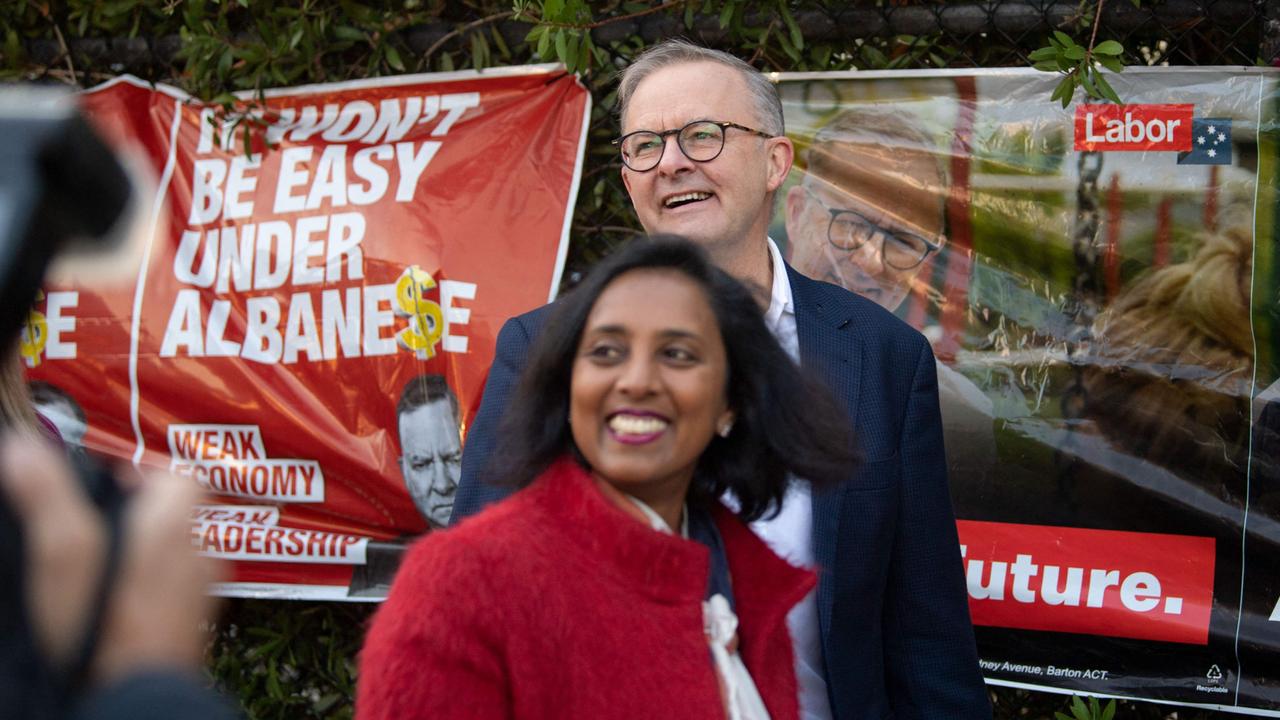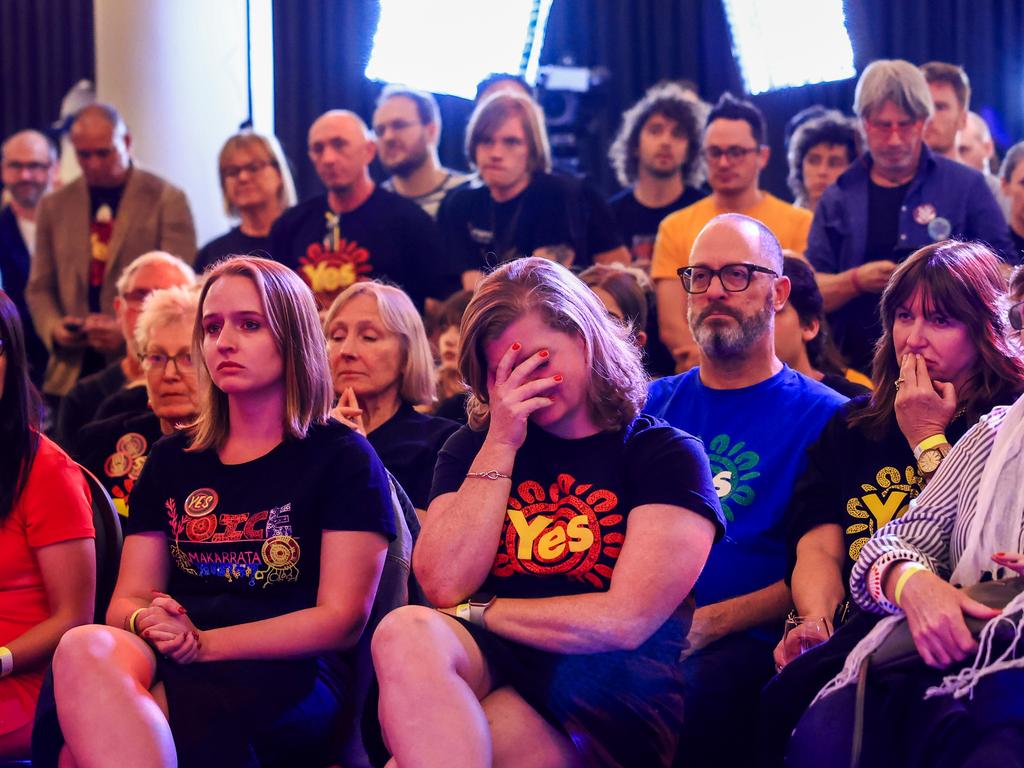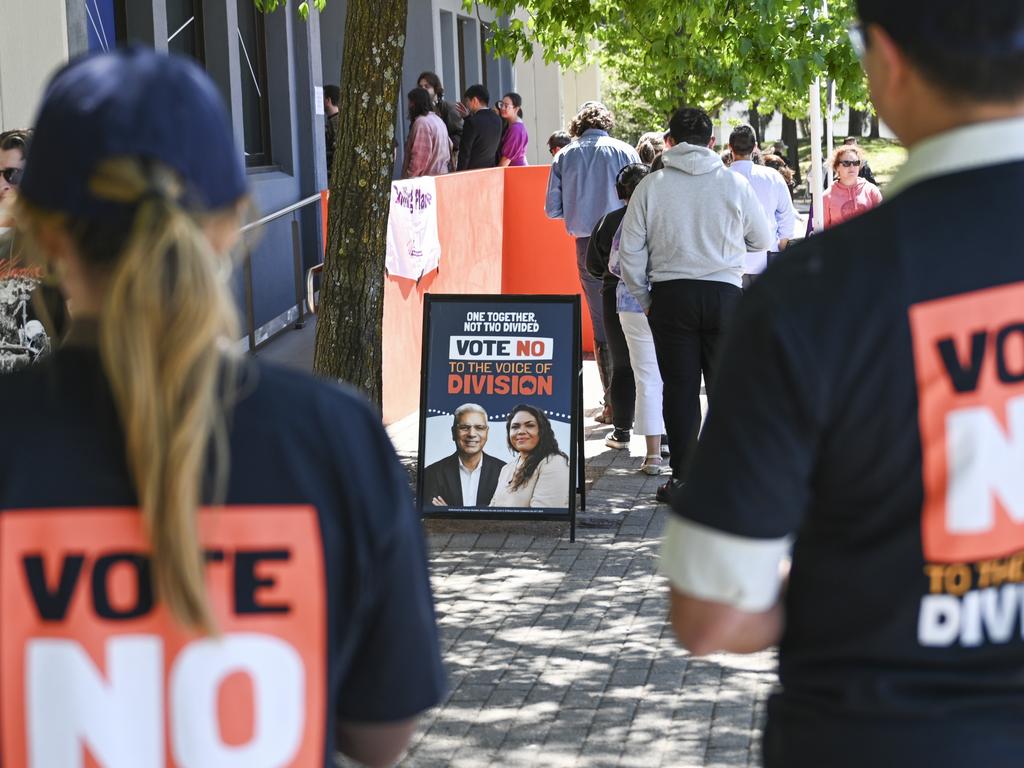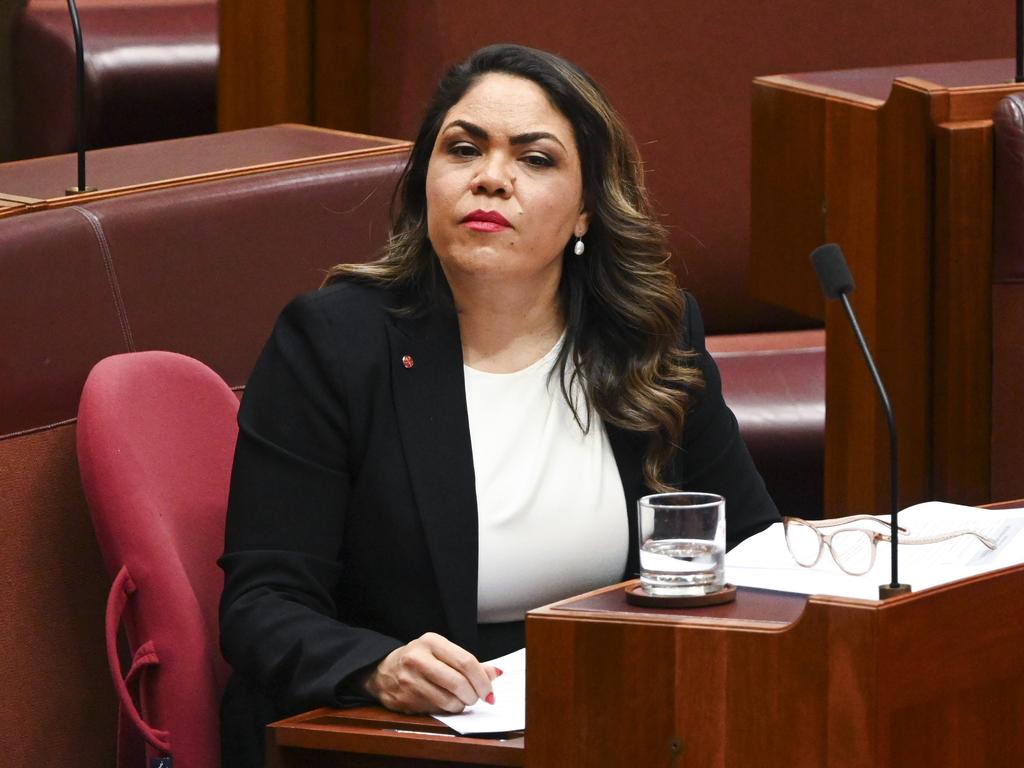Labor should heed voices of the marginalised following the referendum


Ananda-Rajah is not the only member of the Labor caucus who imagines that losing a referendum by a paltry three million votes is a mere flesh wound. Voters might not have liked the 92 words in the referendum proposal, Labor’s Graham Perrett said, but it didn’t mean they disliked other words like treaty or truth.
The Prime Minister must stop this delusional nonsense if he doesn’t want the remainder of his first term to be consumed with the same futile and divisive argument in which we’ve been engaged for the past 17 months.
You would have to live in La La Land or inner-city Melbourne to believe that voters who picked up a stubby pencil and wrote the word No on their ballot paper would sign off on the other demands in the Uluru statement. That a voice Mark 2 is even being considered indicates that Labor does not know how much trouble it is in.
The Yes side is paying the price for trying to win a debate by talking over the top of their opponents and covering their ears. They have deprived themselves of learning why the dickhead, racist dinosaurs wouldn’t buy their product.
Had they listened, they would have known that voters were not just rejecting the voice but the whole woke social justice shooting match.
They were objecting to being robbed of their worth as individuals by being forced into a category. They think newborns should be categorised as male or female, not as oppressors or oppressed. They don’t believe it is sensible to indulge in the luxury pursuit of historical grievances if we want to remain a civilised society. They think that the common bond of citizenship best overcomes differences and that no group of citizens is more special than another.
As Fraser Nelson wrote in The Telegraph, Australia has just held the world’s first referendum on identity politics. It has furnished us with the data to declare, once and for all, that dividing people into categories to pursue the nebulous goal of social justice is a minority obsession. Australians object most strongly when the division is according to race. The referendum result is our assertion of the principle upheld in the US 14th amendment. Our Constitution should be colourblind.
Labor would be making a big mistake if it were to dismiss the referendum result as misinformed or unintentional. It would deprive the party of a window on to parts of the country it barely understands. It could save itself a fortune in focus groups by sifting through the Australian Electoral Commission’s dataset to map the political fault line dividing the inner-urban elite from the rest of the country, the boundary between the Yes and No zones.

The disparities between the 32 electorates that voted in favour of the voice and the 119 that voted against it are stark. One in three residents in the Yes zone is university educated, according to the census. In the No zone, it’s one in six. The Yes zone is home to just 20 per cent of the population but includes 50 per cent of Australia’s journalists and media professionals, 61 per cent of barristers and 42 per cent of chief executives.
It contains more artistic, film, broadcasting and stage directors (3126) than bricklayers (2772).
It is also home to the Prime Minister, whose inner-city constituency of Grayndler voted 74 per cent to 26 per cent in favour of the voice. It includes 11 of the Yes side’s top 20 booths in NSW. The other nine are in Tanya Plibersek’s neighbouring electorate of Sydney.
Anthony Albanese’s peculiar challenge is to wake up every day and remind himself he must govern for the people of Newtown, who voted nine to one in favour of the voice, and the good people of Tottenham in the central west of NSW, who voted nine to one against. He must find the self-awareness to realise that when they hail you as a conquering hero in Marrickville, you’re in big trouble everywhere else.
His challenge if he wants to stay in the top job for long is to look less like the member for Grayndler and more like a Prime Minister.
He has struggled with this task in his first 17 months in the job. The referendum confirms he is wildly out of step with the country and Labor voters.
The national tally, 39 per cent in favour of the voice and 61 per cent against, barely scratches the surface. Albanese’s referendum was rejected by 59 of the 78 Labor electorates. The average No vote in Labor electorates was 60 per cent.

It will be interesting to see Albanese’s reception if he campaigns in Labor-held seats such as Hunter or Paterson in NSW, where 70 per cent voted No.
Albanese’s judgment on matters that trouble the minds of inner-city dwellers has not just warped the government’s indigenous policy. It has saddled the country with an energy policy tailor-made for the kind of inner-city suburbs where everybody is an expert in climate change but blissfully ignorant of the laws of thermodynamics.
It is a policy designed to satisfy the people who demand more renewable energy without ever waking up to learn that they’re about to be surrounded by a solar plant twice the size of the Melbourne CBD or that the tops of surrounding hills are about to be blown off to plant giant wind turbines.
Those things happen in the No zone, the parts of the country where rising power prices are most keenly felt and the jobs that go to China because of the cost of energy may be your own.
The simmering resentment in the outer suburbs and regions towards a government that appears not be listening will only rise if Albanese takes the advice of Ananda-Rajah and other members of Labor’s dreamy faction.
Ironically, the referendum has given a voice to a marginalised group of Australians who struggle to be heard in Canberra. Whether the Prime Minister listens is another matter altogether.
Nick Cater is senior fellow at the Menzies Research Centre.







Labor backbencher Michelle Ananda-Rajah is not the sort of woman who takes no for an answer. Australians may have responded negatively to “a specific question” about the Uluru statement but they still may be up for the rest. “They said no to a particular way,” the member for Higgins told Guardian Australia, “so we need to find another way.”